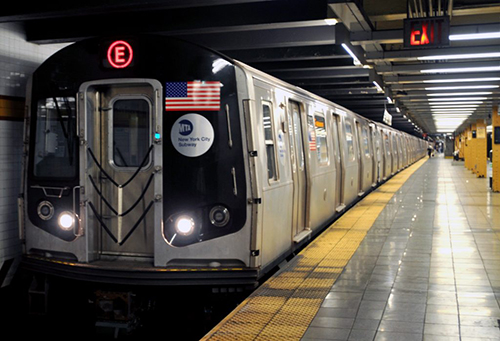
MetaSUB Consortium will collect DNA and RNA samples from high-traffic areas in subway systems, buses, and parks in 54 cities worldwide.
Weill Cornell Medicine researchers will use tools and technologies from Qiagen and CosmosID in a global study that the partners said today will collect DNA and RNA samples from high-traffic areas in subway systems, buses, and parks in 54 cities worldwide, the companies said today.
The study seeks insights on the prevalence of pathogens, including antimicrobial resistance, in urban environments—and expands on a 2015 metagenomic portrait of microbes in the New York City subways.
Qiagen said the project will use its MO BIO PowerSoil® sample technology kits for sample extraction and QIAseq FX DNA library preparation kits to enable next-generation sequencing. CosmosID said the effort will use computational tools and curated genome databases, with the goal of generating accurate and precise identification of microbial community composition and antibody-mediated rejection (AMR) markers.
The study’s principal investigator is Christopher E. Mason, Ph.D., associate professor of physiology and biophysics and of computational genomics in computational biomedicine in the HRH Prince Alwaleed Bin Talal Bin Abdulaziz Al-Saud Institute for Computational Biomedicine at Weill Cornell Medicine. He will collaborate with colleagues at other institutions and the MetaSUB Consortium, which consists of 54 member cities.
“Just as our PathoMap study created a profile of New York City’s metagenome based on mass-transit areas, the MetaSUB researchers and laboratories will work to establish a worldwide ‘DNA map’ of microbes in subways and other transit systems,” Dr. Mason said in a statement. “This 5-year commitment will yield insights on antimicrobial resistance in urban areas and lead to discovery of new biosynthetic gene clusters revealing interactions of microbes and the environment.”
MetaSUB’s samples from subways and other urban sites are being collected in sync with today’s Global Ocean Sampling Day, with researchers aiming to provide a “genetic snapshot” of the world’s cities and oceans at the same time.
In some cities such as New York, Boston, and Montevideo, metagenomic data also will be generated from sewer systems and beaches and compared to findings from the other environments.
MetaSUB said its data, methods, techniques, and results will all be open to the public and free for all to use.
Cities in 32 countries across six continents are participating in the consortium—including the U.S., where MetaSUB researchers will work in Baltimore, Boston, Chicago, Denver, Fairbanks, New York City, Sacramento, San Francisco, Seattle, and Washington, D.C.
MetaSUB researchers will also look at metagenomic impacts of the Olympics in Rio de Janeiro in August, in what the consortium says is a “natural experiment” illustrating a global human migration event. Researchers will carry out sampling of RNA and DNA before, during, and after the Olympics, including a search for RNA viruses such as influenza and Zika.
According to Qiagen, MetaSUB is among life sciences initiatives using its technologies toward advancing the understanding of microbiomes. Another is the National Microbiome Initiative, a $121 million effort announced last month by the White House Office of Science and Technology Policy (OSTP) with federal agencies and private-sector stakeholders.



